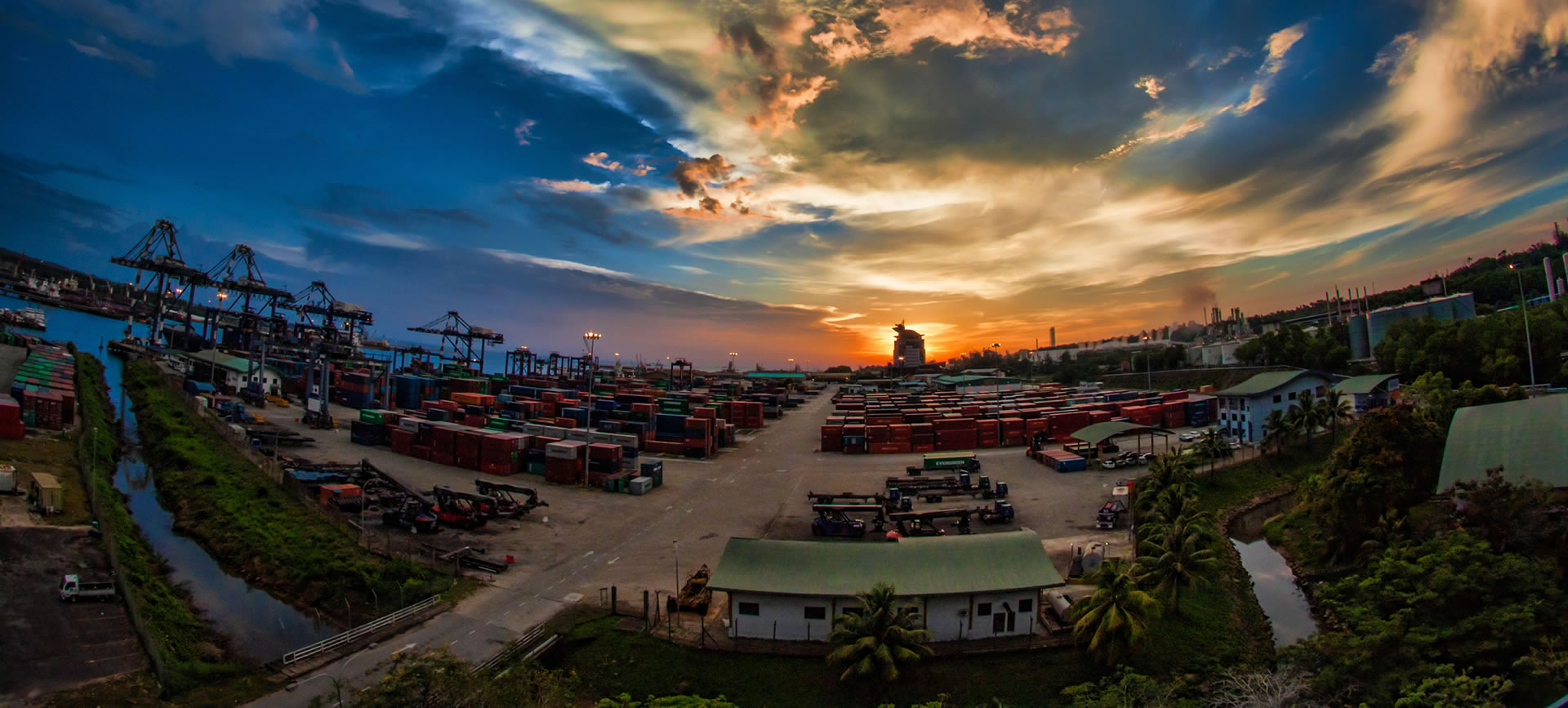KUCHING: Bintulu Port Holdings Bhd (BPHB) has re-scheduled several of its major development projects for Bintulu Port as the economic slowdown has affected its total cargo throughput.
Chief executive officer Datuk Mior Ahmad Baiti Mior Lub Ahmad said as there was no urgency to implement the proposed projects mooted two years ago, these have been re-scheduled to 2018 and beyond.
The projects include the construction of a 400m general cargo wharf and 300m bulk fertilizer wharf, both planned for the 2nd Inner Harbour, conversion of 300m general cargo wharf for container operation, an additional petrochemical jetty and a petrochemical tank farm.
“We had budgeted earlier for some RM200mil in capital expenditure (capex) between 2016 and 2018 to fund these proposed projects,” he added.
He said by delaying the implementation period of the projects, this had reduced BPHB’s capex this year and 2017.
Port Affected By Slow Economy Share on XBintulu Port’s total cargo throughput was down by 1.3% to 44.81 million tonnes last year from 45.4 million tonnes in 2014. Liquified natural gas (LNG) cargo handled dropped by 1.6% to 25.1 million tonnes from 25.5 million tonnes while non-LNG cargo fell by 0.95% to 19.7 million tonnes from 19.9 million tonnes year-on-year.
LNG cargo remains the backbone for Bintulu Port.
There was a sharp decline in containerised cargo – by 9.9% – as the number of TEUs (20-foot equivalent unit) handled was down to 243,699 from 270,495 in 2014.
The decline was blamed on the lower export volume of timber-based products and the slow demand for aluminium and wax-based products.
However, the port recorded a 21% growth in dry bulk cargo to 4.11 million tonnes from 3.39 million tonnes in 2014, with the increase coming mainly from agricultural-based products, such as palm kernel, bulk fertilisers, granules urea and importation of raw materials for manufacturing industries in Samalaju Industrial Park.
Last year, the port handled more than 500,000 tonnes of palm kernel products.
Mior Ahmad expects continued growth in palm kernel cargo going forward as a new palm oil refinery owned by Borneo Edible Oils Sdn Bhd would come on stream in October this year. The new refinery has an annual capacity of 500,000 tonnes.
Subsidiary Biport Bulkers Sdn Bhd currently handles more than 90% of the export of Sarawak’s palm oil products.
Last October, Bintulu Port completed a 120m barge berth facility that has boosted the turnaround time and reduced waiting time for palm oil vessels at the jetty. The new facility has enhanced the efficiency in handling of palm oil exports.
“In the first quarter this year, we have seen an encouraging increase in containerised cargo throughput, which went up by 13% as compared to the same period last year,” said Mior Ahmad.
He said Bintulu Port’s anchor customer Petroliam Nasional Bhd (Petronas) would increase the production capacity of LNG by 3.6 million tonnes per annum (current capacity is 25.7 million tonnes per annum) when the new LNG Train 9 is operational early next year.
LNG demand from China has dropped but shipments to Japan and South Korea have increased.
On the Samalaju Industrial Port project, Mior Ahmad said phase 1 development which caters for handymax and handysize vessels was expected to be completed by first quarter-2017 and slated for operations in April next year.
By then, energy-intensive industries such as aluminium, ferrosilicon and managense alloy smelters will shift the imports of raw materials and export of finished products from Bintulu Port to Samalaju Port, which is designed to serve the Samalaju industries.
The new port began interim operations two years ago, providing two barge berths and a ro-ro ramp.
For financial year ended Dec 31, 2015, BPHB posted the group’s pre-tax profit of RM168.5mil, which was 12.5% lower from RM192.6mil in FY2014 as revenue fell marginally to RM552mil from RM547mil.
–STARPROPERTY

